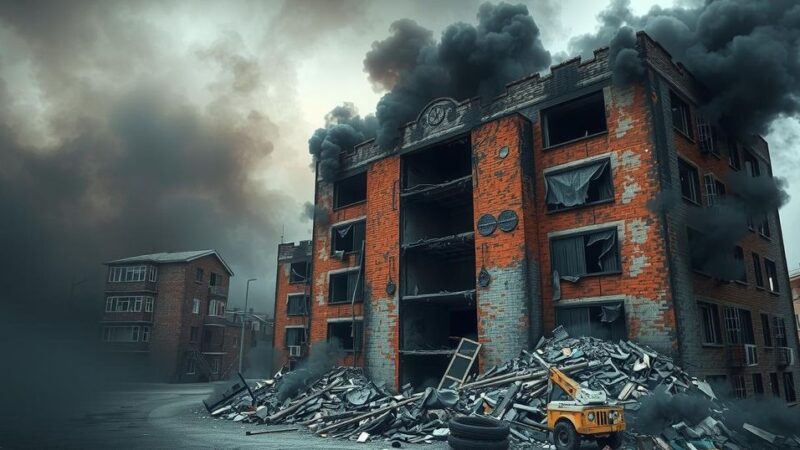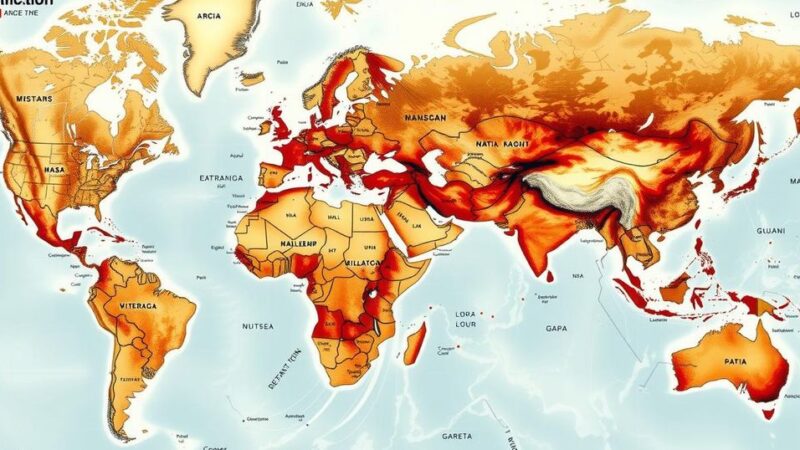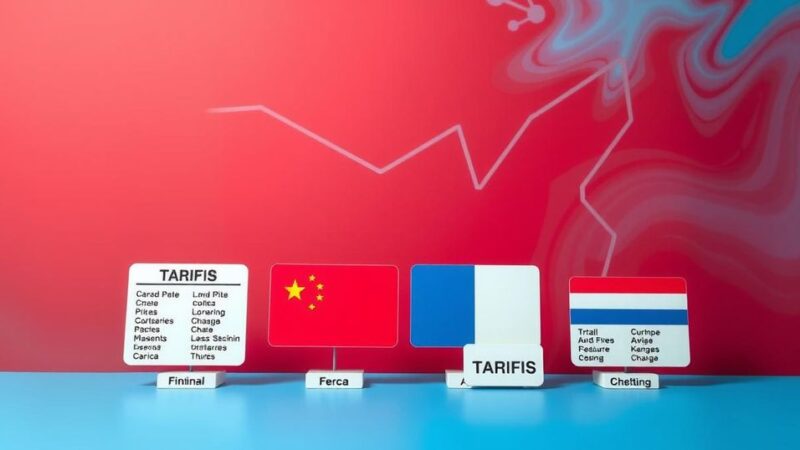President Trump has launched extensive military strikes against Yemen’s Houthis in response to threats against Red Sea shipping, resulting in significant casualties. This represents a major US military operation in the region with escalating tensions between the US and Iran over support for the Houthis and ongoing nuclear negotiations.
On Saturday, President Donald Trump initiated extensive military strikes against Yemen’s Houthis, aligning with Iran, due to their assaults on Red Sea shipping. Initial reports estimate at least 31 casualties, including women and children, during the aggressive campaign’s onset, which is projected to extend over several days.
The President issued a warning to Iran, urging them to cease all support for the Houthis. He remarked, “America will hold you fully accountable and, we won’t be nice about it!” indicating the severity of the measures being undertaken.
These military actions represent the most significant US military engagement in the Middle East since the commencement of Trump’s presidency. The strikes coincide with heightened sanctions against Iran as the US aims to prompt negotiations regarding its nuclear activities.
Trump further declared on his social media platform that the Houthis must cease their attacks, promising severe consequences should they fail to comply: “YOUR TIME IS UP, AND YOUR ATTACKS MUST STOP, STARTING TODAY.” Houthi officials have condemned the strikes as acts of war crime and vowed to respond with escalation.
Local reports from Sana’a note that the strikes impacted Houthi-controlled strongholds, causing significant distress among residents. One resident described the explosions as “violent and shook the neighborhood like an earthquake.”
Strikes also targeted military installations in Taiz and caused power outages in Dahyan. The Houthis have previously launched numerous attacks on vessels off Yemen’s coast, implementing a strategy that disrupts global commerce.
A Pentagon spokesperson revealed that the Houthis had conducted 174 attacks on US military ships and 145 on commercial vessels since the beginning of the year. They justify these actions as related to the conflict in Gaza, claiming solidarity with Palestinians.
In addition to the military operations, Trump has emphasized that the US will undertake sustained military action to counter Houthi threats. Defense Secretary Pete Hegseth reaffirmed this position, stating, “Freedom of Navigation will be restored.”
Iranian officials, including Foreign Minister Abbas Araqchi, publicly condemned the US intervention, arguing that the US lacks authority to impose its foreign policy standards on Iran. Following the recent hostilities, the Houthis declared intentions to resume attacks on Israeli vessels in critical maritime regions.
After a failed attempt to negotiate a ceasefire regarding its nuclear program, Iranian leadership appears increasingly anxious about potential unrest spurred by economic difficulties. Iranian officials admit that public dissent could escalate significantly if their economic conditions deteriorate further.
Secretary of State Marco Rubio has communicated with Russian Foreign Minister Sergei Lavrov regarding the US’s military actions in Yemen, reflecting potential diplomatic shifts amidst the ongoing conflict in Ukraine, where Iran is reportedly providing weaponry to Russia.
The tension between the US and Iran continues, with experts warning about the implications of Iran’s nuclear progression, underscoring that enrichment levels nearing 60 percent purity may indicate advancements toward weapons capability, despite Iran’s denials of such intentions.
In summary, President Trump’s initiation of military strikes against Yemen’s Houthis marks a significant escalation in US involvement in the Middle East, resulting in substantial casualties and raising tensions with Iran. The action intertwines with broader geopolitical implications, including naval security in the Red Sea and ongoing nuclear negotiations with Iran. Continuous threats and military responses hint at an increasingly volatile situation, potentially affecting both regional stability and international relations.
Original Source: www.arabnews.com






